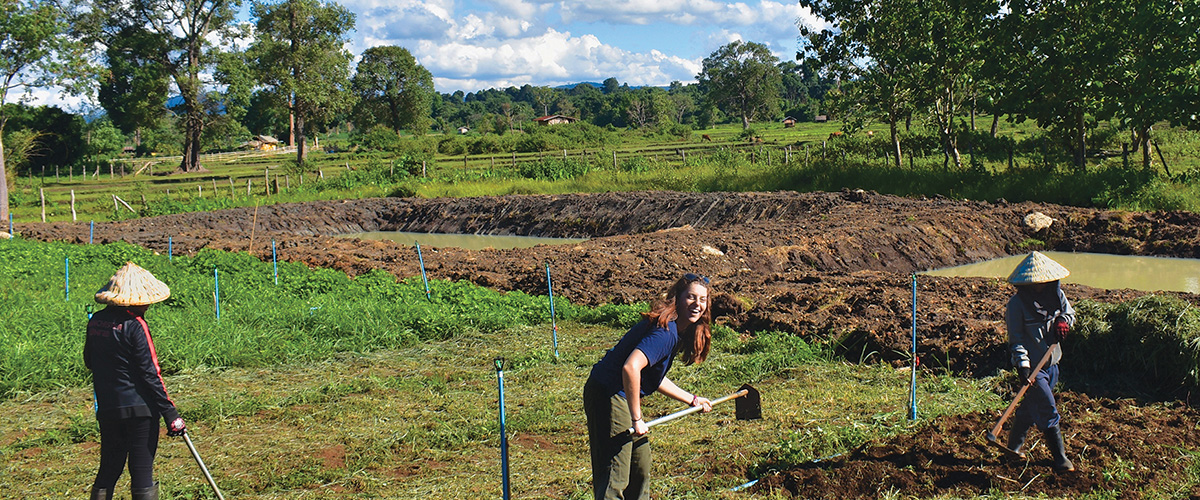Please don't give Christina Cilento a bag
When Christina Cilento (BS17) resolved to avoid plastic in 2021, she was surprised by how much time and energy she spent begging others to do her small favors. At the farmer’s market, she asked if the vendor would reuse the plastic bag containing green beans. On the phone with the grocery store, she wondered if they could set aside two unpackaged roasted chickens, which she’d carry home in a gigantic pot.
The experience taught Cilento, now a consultant in Washington, DC, for the clean-energy firm Strategen, that it’s difficult to go it alone when it comes to promoting sustainability and fighting climate change. Individual actions, she says, need to be coupled with teamwork and systems transformation to result in lasting change.
“My journey in the climate and plastics space very much reflects what I learned at SESP,” she says. “It feels good to channel my passion for personal sustainability into widespread education and policy-level change.”
A longtime sustainability advocate who gave away 300 bicycle helmets when she was president of Northwestern’s Associated Student Government, Cilento began thinking about how to channel her activism when she was selected to report on the 2015 United Nations Climate Change Conference in Paris. Two years later, she won a Luce scholarship to work on local environmental issues in Laos for nonprofit Village Focus International and travel across southeast Asia after graduation.
During that period, Cilento observed environmental damage firsthand. In addition to inhaling fumes from burning plastic in Laos and witnessing heaps of trash choking Manila Bay, she spent her time talking with rural Lao communities about the environmental effects of development projects like rubber plantations and hydroelectric dams.
“We’d travel eight hours on dirt roads to get to villages and talk about [the] really pressing issues communities faced,” says Cilento, who became fluent in the Lao language during her three years in the country. “It taught me a lot about framing environmental issues in ways that resonate. People might not identify as environmentalists, but they’re still concerned about their community’s health and well-being.”
She now uses those skills at Strategen, where she works on projects like helping a southern California utility develop a 20-year energy resource plan. Her role requires speaking with community members about what they want to see in the plan, including how much of the community’s energy will be renewable and where it will come from.
The goal, she says, is to make people feel empowered even though it can be easy to feel hopeless about climate change. “I’m trying to give communities a voice in shaping their energy future,” she adds.
In her spare time, Cilento, an avid hiker, volunteers with the speakers’ bureau of nonprofit Beyond Plastics. She talks to faith communities, student organizations, and other groups across the country about the history of plastic pollution, its effects on health and the planet, and policy solutions to fix it.
Her own plastic consumption remains relatively low, and she still shops in bulk and brings her own containers to restaurants. What’s changed since 2021 is that she’s easier on herself when she can’t be completely plastic-free—but she’s no less determined.
“Every oddball thing I manage to get unpackaged is a piece of ocean litter avoided,” she wrote in Grist. “Every incredibly accommodating grocery worker who gives a thoughtful nod when I explain why I’m asking them to stuff pieces of cod in a Tupperware for me is another person who might think more critically about the role of plastic in their own lives.”
